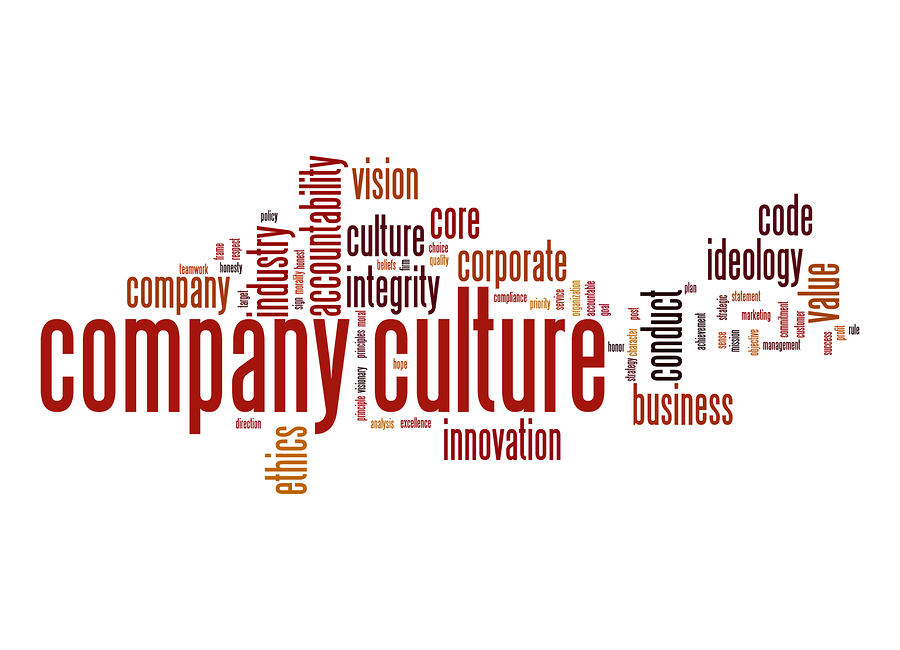The Culture of Lean? What is the first thing that comes to your mind after reading that? I am willing to bet a lot of money it isn’t what the rest of this piece is about.
In his book Scaling Up: How a Few Companies Make It…and Why the Rest Don’t, Verne Harnish says, “We are so bullish on Lean that we’re confident that the first company in any industry to fully embrace this methodology will dominate. And for those thinking that Lean is synonymous with the overly complicated and expensive Six Sigma approach to quality improvement, you can relax. Lean, though it requires a real change in mindset, uses a few very simple tools to drive dramatic improvements.”
As a CPA and Lean Six Sigma Black Belt, I find Verne’s quote very powerful. I fully support Lean as both a process improvement methodology and as a tool that can transform your organization.
All organizations that have spent time or money on growing have come across the same question: How does our culture impact our ability to grow? If you don’t get your culture right, you won’t be able to achieve your goals. The Culture of Lean is based on the five principles of Lean:
- Customers define value
- Identify the value stream
- Make the process flow
- Implement “pull”
- Continuous Improvement
Yes, these five principles are the same five principles used to improve process. How can you use these to create a strong culture? Luckily, the rest of this piece is going to show you how to build your own first-rate culture. Remember Verne’s statement above: “the first company in any industry to fully embrace this methodology will dominate.” Get ready.
Customers define value
First, you must know who your customers are. You have more customers than just those that give you money. Every employee of your company is also a customer. The key to this principle is to recognize that you first must have your team on the same page. Each person you hire needs to understand your culture. Then you need to understand that the culture of a ten-person company might be different than a 100-person company. Once you have your internal culture under control, you need to focus on working with clients that match your internal culture.
Identify the value stream
This is where you need to match your organizational core values with the clients you choose to work with. A common core value is integrity. To have a strong Lean culture, you need to allow anyone in your company to question the integrity of your clients. It may be that to maintain your culture you will have to make hard decisions. For instance, you have a large client whose core values do not match up with the lean culture you have established. Are you confident in the culture you have created? Can you pass on this client? The Lean Culture would say, YES!
Make the process flow
How can culture be a process? Culture is not something you build and then save. Culture is a living and breathing thing. How often do you review your strategic plan? Once a year is not enough! Once a quarter is not enough! In a Lean Culture, your one-page strategic plan is something so engrained in your people that they are referencing it daily. Anytime they have a question that might lead to a difficult conversation they are reviewing the Vision, Mission, Core Values and Strategic Objectives. Why do this? Consider which is a more powerful way to handle a situation in which a supervisor is speaking harshly to a subordinate: ‘Stan, you can’t talk to Spencer that way!’ or ‘Stan, can you tell me how your conversation with Spencer is consistent with our core values?’
Implement “pull”
Implementing pull is about growing your company. It has everyone in the organization realizing that to move up the ladder they must first train their replacement. I had a very astute staff person tell me once, “You can’t move up until I move up.” That was a very powerful statement and one that you can reflect upon with pride because it matches the culture of Lean.
Continuous improvement
This is probably the hardest of the core values when it comes to culture. Why? Because it requires the most discussion and potentially the most change. A common goal of most organization is to grow. At what number of people (20, 40, 60, 80?) will we need to change how we do things? How will this impact our company?
Here is a recent example from my family. We have two teenagers, so communication is one of our core values. We recently added a puppy, Nash, to our family. When Nash was added to the mix, we needed to communicate his daily routine with each other. This led to the creation of a family text that included the Nash Report. The Nash Report would be something like, “He was outside to do his business at 8:45 AM, we played for X minutes.” This simple start became a regular family text message where we share other daily activities. I recently sent a selfie of something fun I was doing while traveling for work.
Before the Nash report, we communicated almost entirely in person. This was great when we were all physically in the same location, but ineffective when I was traveling and the kids were out doing their thing. So we changed our culture of communication for the better.
How does this translate to your firm? Perhaps now your firm has only a dozen professionals and the entire team is in the office most of the time, so your main form of communication is stopping by a team member’s office for a chat. That may be effective now, but what happens when your firm grows to 100+ professionals, some working remotely or at offices in other states? Some people might see this as a negative when face-to-face communication isn’t possible. But a Lean culture adapts to change and finds solutions that will help them maintain an “open-door policy” even though team members may be hundreds of miles apart.
In conclusion
How Lean is your culture? I will be honest, talking about culture can be very difficult. Businesses who have a hard time establishing their culture often find that they are struggling in other areas of their business as well. The Lean Culture has the power to provide you and your employees the framework to work through those struggles and create a consistent culture that will establish confidence within your employees and overall impact the quality of clients that you bring into your business.
Thanks for reading CPA Practice Advisor!
Subscribe Already registered? Log In
Need more information? Read the FAQs





